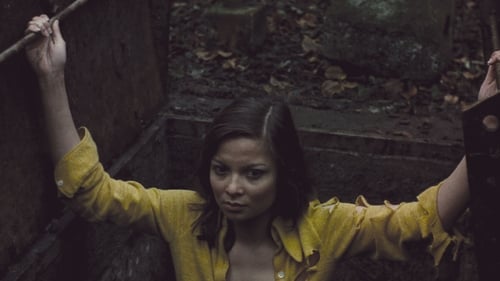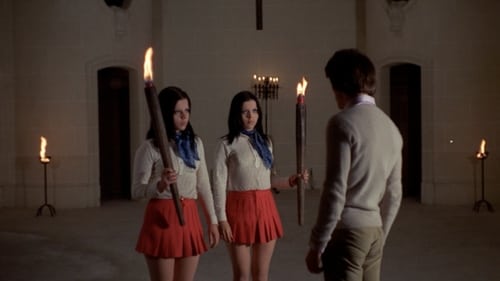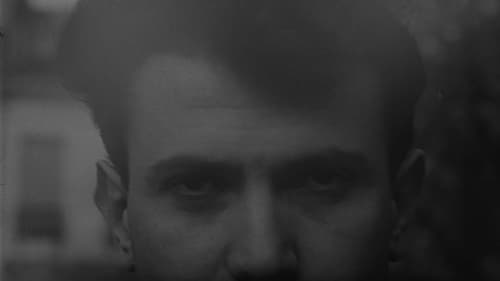
Maurice Lemaître
Nascimento : 1926-04-23, Paris, France
História
Maurice Lemaître (born April 23rd 1926 in Paris) is an artist, writer and French poet. He is known to be one of the main figures of lettrisme, a movement started in the 1950s.
Lemaître was educated at the School of Arts and Crafts and Public Works. After taking part in the Liberation of Paris, he began his philosophy degree at the Sorbonne.
In 1948, he began his career as a journalist and wrote for the newspaper of the libertarian movement. A year later, he met Isidore Isou and immediately became interested in his political and avant-garde thoughts.
In 1950, Lemaître becomes very invested in the Lettrist group and created in the same year the "Youth Front", a political journal; while simultaneously creating a literary and pictorial magazine, entitled "Ur," which remains as "The Minotaur" of lettrism. Since his literary creations, Lemaître has continued to develop various fields within the Lettrist movement: poetry, theater, dance, novel, painting, photography, film, economy, psychopathology and psychotherapy . Despite his dedication to the movement, since 2000, Lemaître distanced himself from the movement and is now relatively isolated from the main group.

Lui-même

Himself
Experimental filmmaker Pip Chodorov traces the course of experimental film in America, taking the very personal point of view of someone who grew up as part of the experimental film community.

A young woman inherits the house of Jean Michel but she is haunted by strange dreams and numbers. She has no idea that this is the beginning of the 'the night of clocks', which opened for those who have sinned, the dead which are not dead...

Director
Ganeden, in Hebrew, signifies the «Garden of Pleasures", paradise, Eden. Our images of an imaginary journey, in this enchanting place, this place, according to the author, is an original reflection on the theme of travel, that the filmmaker sees, not as a tiring and vain disturbance, amongst the illusions of reality, which are sometimes dangerous, but as a movement, an action, an undertaking, an adventure.

Director
A chronicle of the fantasies and dream of women in avant-garde contemporary cinema. The faces and bodies of new women haunt the paths and alleyways of avant-garde cinema.

Director
An invitation to travel, one of the main themes of Lemaître, and a genuine manifestation of film Lettrism

Director
Excerpt from the film's soundtrack: - Hélène Richol: Why do you call your film "Fin de tournage"? - Maurice Lemaître: First of all because most of my films have a title relevant to the cinema: ever since "Le film est déjà commencé ?", "Votre Film", etc. (...) And then because when I thought of doing this film, I was very depressed... not in good shape... And I thought that this would be my last film.

Director
1976-1989, 24 min

Director
The "Films Imaginaires" are made up of only texts, filmed in cardboard boxes for the screen, of various works already shown to the public at the time, and which have been printed here or there, then gathered in the larger edition of my "Œuvres de Cinéma". The simple passage into photograms, then into the projection of these texts, with sound, transforms these "films" into another kind of film creation, even more advanced.

Director
“The film you are about to see now will not be projected onto the sky, as Maurice Lemaître’s film, UN SOIR AU CINÉMA, was in part in the 1960s during a performance in the gardens of the American Center, Boulevard Raspail, because it is made of transparent film, from beginning to end. And the image is precisely the projection of all the dust, scratches and accidents of all kinds whose transparency is altered, like so many stars and galaxies of possible images.” –Maurice Lemaître

Director
Documentary about notorious actor/director Erich Von Stroheim.

Director
For a long time now, we have been seeing outrageous attempts at tackling the 'woman problem' (and the 'man problem') by pretentious and old-fashioned 'professors' or 'revolu-tionaries,' related to the Nazis or Stalinists, who have just as outrage-ously exalted the proletariat, race or nationality, leading to racist and imperialist crimes. Such excessive behavior can only lead to the exploita-tion and destruction of the very gender concerned. In any case, the basic components of simple love and simple friendship (and a fortiori of Super-Love and Super-Friendship), that we have explored in depth (as evoked in my film, What is Love?), are still so poorly understood today by our contemporaries that even those who claim to be happily experiencing these run the risk of being quickly proven wrong by Life itself."

Director
1978, 15 min 30

Director

Director

Director
What is film?
The spectator will be able to imagine all possible Westerns and anti-Westerns.

Director

Director

Director

Director
50 good films

Director

Director

Director

Dialogue
A young couple out for a walk decide to take a stroll through a large cemetery. As darkness begins to fall they realize they can't find their way out, and soon their fears begin to overtake them.

Director

Georges Radamante
A young man falls in love with a beautiful woman being chased by sinister masked figures at night. He tries to track her down, and learns she's being held captive by his father and colleagues who believe she's a vampire.

Director

Director

Writer
This film is a supertemporal oeuvre. The support of the audience's participations is constitued by an image, which has varied several times during the course of many a projection. A projection by Maurice Lemaître, himself, in the soundtrack, clarifies the function of the session and finishes on a challenge thrown to the room.

Director
This film is a supertemporal oeuvre. The support of the audience's participations is constitued by an image, which has varied several times during the course of many a projection. A projection by Maurice Lemaître, himself, in the soundtrack, clarifies the function of the session and finishes on a challenge thrown to the room.

Director

Director
Maurice Lemaître had the ambition to make a really creative film about the revolt of May 68. For this, he did not renounce any of his filmic audacities and he managed to plunge into this new thematic dimension the cinematographic inventions put in In its previous achievements.

Director
This film, first titled La poubelle du labo (The Lab Trashcan), and after L'Enfer du cinéma (Cinema's Hell), has been projected for the very first time in September 1968 at the French Cinémathèque. It can be considered as the cinematographic equivalent of Tristan Tzara's method on how to make a dadaist poem by putting words in a bag, and it mostly rises from Isidore Isou's film enthusiasm. The film has been made in fact out of elements of film strips found in the trashcan of a film development laboratory, that have been subsequently taped together bit by bit following the exact order they were originally gathered.

Director

Director
1968, 26 min

Director

Director

Director

Director

Director

Director
“A pink moving screen will stand at the entrance to the theatre, in the night. One hour before the screening a projectionist will show Griffith’s Intolerance on this screen. The start of the film will be announced at 8.30 but no one will enter before 9.30. During these 60 minutes of waiting, people on the first floor of the building will shake out very dusty carpets, and someone else will throw ice water on the heads of those spectators waiting for the screening. Some actors who have infiltrated the crowd will insult other actors on the first floor. At this moment only, and to stop the beginning of a scandal, the doors of the theatre will open…”

In this experimental film, Isidore Isou, the leader of the lettrist movement, lashes out at conventional cinema and offers a revolutionary form of movie-making: through scratching and bleaching the film, through desynchronizing the soundtrack and the visual track, through deconstructing the story, he aims to renew the seventh art the same way he tried to revolutionize the literary world.

Director

Director

Director





